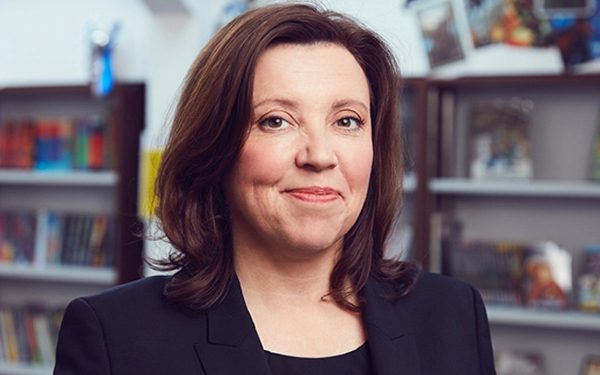
Social Work Recap is a weekly series in which we present key news, events, conversations, tweets and campaigns around social work from the preceding week.
This week’s includes a call from social workers and students for government to increase bursaries for trainees in England, a survey from the Children’s Commissioner for England on whether care experience should be a protected characteristic and a video on the difference between a social work approach, theory, model and method.
Social workers and students urge ministers to end bursary freeze

Photo: Drobot Dean/Fotolia
Over 400 social workers and students have called on government ministers to reconsider their nine-year freeze on bursaries for social work trainees in England.
They have signed an open letter, co-ordinated by the Social Workers Union, to education secretary Gillian Keegan and health and social care secretary Steve Barclay, urging them to rethink their refusal to assess current bursary levels.
Undergraduate and postgraduate bursary levels have been frozen since 2014 and are now worth £1,000 to £1,500 less in real terms than they were nine years ago due to rising prices.
The number of available bursaries anually has been fixed for a decade, at 2,500 for undergraduates and 1,500 for master’s students, while there are no payments for first-year undergraduates, meaning that many students miss out on support.
“We now urge you to reconsider your position and do what you can to improve the financial situation for social work students,” the letter’s 411 signatories told Keegan and Barclay.
The campaign is also backed by the British Association of Social Workers.
Should care experience be a protected characteristic?

Children’s Commissioner for England Rachel de Souza (credit: Office of the Children’s Commissioner)
The Children’s Commissioner for England has added her voice to the debate about whether ‘care experience’ should be a protected characteristic under the Equality Act 2010, after the government rejected care review proposals for it to be so.
Rachel de Souza has launched a survey of young people in care, care experienced people, their parents and practitioners working with them on their views about the idea.
The reform would make it illegal to discriminate against care experienced people in the provision of services and employment and require public bodies, including councils, to take active steps to tackle the inequalities they face.
In its final report last year, the Independent Review of Children’s Social Care backed the idea, arguing it would help tackle the discrimination and stigma care experienced people face in their daily lives.
However, the Department for Education rejected the proposal, in favour of applying the corporate parenting principles governing how local authorities should treat children in care and care leavers to a wider set of bodies.
Despite this, nearly 40 councils have passed motions in favour of care experience being a protected characteristic, according to campaigner Terry Galloway, who was himself in care.
De Souza said she was wanted to “explore every possible avenue” for removing barriers to children in care and care leavers achieving their ambitions, including whether making care experience a protected characteristic would help.
You can access the commissioner’s survey here.
Video: how theories, models, methods and approaches differ
How do you distinguish between a theory, a model, a method and an approach in social work?
Social worker and practice educator Siobhan Maclean has produced an animated video exploring that very question, using the social pedagogy concept of head, hands and heart to illustrate her thinking.
She suggests that your approach to social work is your heart, the theories you apply are your brain, your model is your hands and your methods the tools that sit in your hands.
Find out more by watching the video.
Councils explore ending children’s services partnership

The Isle of Wight’s Needles lighthouse (Image ©Visitisleofwight.co.uk)
Under a deal initiated by the Department for Education, Hampshire took over the running of Isle of Wight’s children’s services in 2013 after they were rated inadequate by Ofsted.
The island’s services improved under the partnership, earning a good rating in 2018.
Both authorities praised the success of the partnership and said that the Isle of Wight’s services were now in a position to continue independently.
Hampshire council leader Rob Humby said ending the arrangement would also enable the mainland authority to “focus even more closely on the needs of Hampshire children”, in the context of “growing demand and financial pressure”.
Tweet of the week: making staying up late a human right
‘Reasons to be hopeful (part 2)’ – a follow-up to all the frustrating excuses we hear about why people with learning disabilities can’t have ordinary social lives – but there are signs of hope to hang on tohttps://t.co/NVPavjc4lh #socialcare #NoBedtimes #Reasonsorexcuses
— Paul Richards (@Heavy_Load) July 27, 2023
Paul Richards has found some reason to hope for his longstanding Stay Up Late campaign to encourage services to enable people with learning disabilities to lead ordinary social lives.
In a blog post linked to from this tweet, he contrasts the frustrating excuses he has encountered in the UK for why support workers cannot work into the evenings so that people with learning disabilities can go to gigs, club nights or other events, with a call he had with an organisation based in New York state.
This provider had a human rights committee, which recently considered a complaint from a man who had been forced to leave a jam session he enjoyed because his support worker wanted to get off shift.
“What a contrast,” Richards mused. “Imagine if all providers had such things as ‘human rights committees’ that took matters like this as seriously as they did.”



 Family help: one local authority’s experience of the model
Family help: one local authority’s experience of the model  ‘I spent the first three months listening’: how supportive leadership can transform children’s services
‘I spent the first three months listening’: how supportive leadership can transform children’s services  How senior leaders in one authority maintain a culture of excellence
How senior leaders in one authority maintain a culture of excellence  How staff support ensures fantastic outcomes for children and families
How staff support ensures fantastic outcomes for children and families  Workforce Insights – showcasing a selection of the sector’s top recruiters
Workforce Insights – showcasing a selection of the sector’s top recruiters 

 Facebook
Facebook X
X LinkedIn
LinkedIn Instagram
Instagram
Comments are closed.